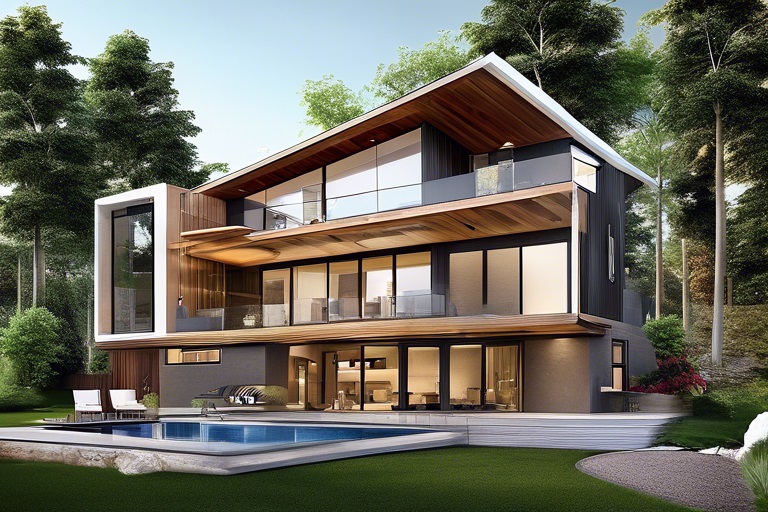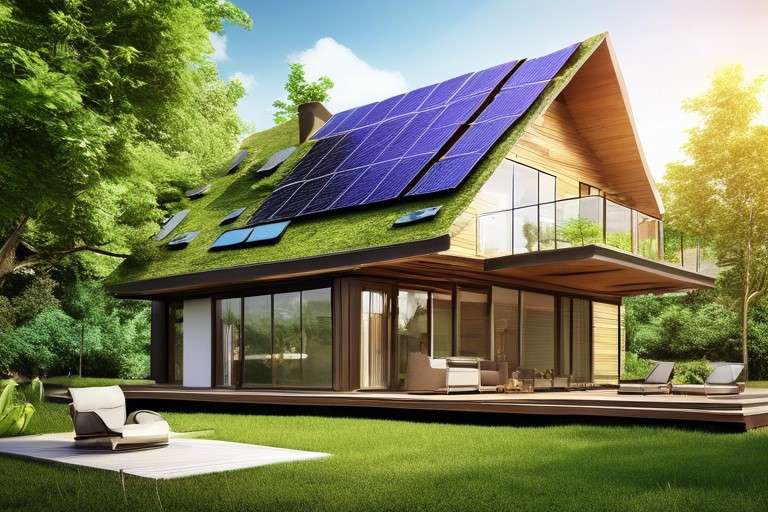In today’s world, where environmental concerns are at the forefront of our minds, building energy-efficient and eco-friendly homes has become increasingly important. These homes don’t just help reduce our carbon footprint; they also offer financial benefits for homeowners, such as lower utility bills and increased market value. If you’re in the process of building a new home, now is the perfect time to consider incorporating sustainable features that will not only benefit the environment, but also save you money in the long run.
Benefits of Energy Efficient New Construction Homes
When it comes to building or buying a new construction home, there are several compelling reasons to prioritize energy efficiency and sustainability.
You can expect significant cost savings on utility bills over time. Energy-efficient features also make your home more attractive to potential buyers, potentially increasing its resale value. Eco-friendly homes prioritize healthy living with improved indoor air quality and consistent temperatures. Additionally, you’ll be contributing to a reduced environmental impact by conserving energy.
At K. Hovnanian Homes, we’re committed to using sustainable construction materials, designs, and features as we build energy-efficient new construction homes across the country. Our work building Zero Energy-ready homes in New Jersey was recently recognized with an award from the Department of Energy, and that’s only the beginning.
For more information on our work building energy-efficient homes, check out our 2023 ESG report or reach out today!
The 4 Key Benefits of Building an Energy Efficient New Home:

1. Reduce Your Environmental Impact and Carbon Footprint
By choosing energy-efficient features for your new home, you can significantly reduce your environmental impact. Energy-efficient homes consume less energy, which means fewer greenhouse gas emissions. This helps combat climate change and promotes a healthier planet for future generations.
2. Lower Your Utility Bills and Save Money on Energy Costs
Energy-efficient homes are designed to minimize energy waste and maximize efficiency. They incorporate features such as insulation, energy-efficient appliances, and smart thermostats that help reduce energy consumption. As a result, homeowners can enjoy lower utility bills and significant cost savings over time.
3. Increase the Value and Marketability of Your Home
In today’s real estate market, energy efficiency and sustainability are highly desirable features. Homebuyers are increasingly looking for homes that are not only aesthetically pleasing but also environmentally friendly. By incorporating energy-efficient features into your new construction home, you can increase its market value and attract potential buyers.
4. Create a Healthier and More Comfortable Living Environment
Energy-efficient homes are built with a focus on indoor air quality and comfort. They incorporate features such as proper insulation, high-performance windows, and efficient heating, ventilation, and air conditioning (HVAC) systems. These elements help maintain consistent temperatures, reduce drafts, and improve indoor air quality, creating a healthier and more comfortable living environment for you and your family.
Sustainable Features for Your New Construction Home

When it comes to building energy-efficient homes, it’s essential to consider sustainable features from the very beginning.
Let’s explore some key elements to incorporate into your new construction home:
Energy-Efficient Construction Materials
Choosing the right construction materials is crucial for building a sustainable home. Insulated concrete forms (ICFs) are an excellent option as they provide superior insulation and reduce energy waste. Additionally, using recycled content in building materials helps minimize environmental impact and promotes the reuse of valuable resources.
Proper Insulation and Air Sealing
Proper insulation and air sealing are vital for maintaining energy efficiency in your home. Insulation helps prevent heat transfer, keeping your home warm in the winter and cool in the summer. It also reduces energy loss and minimizes drafts, ensuring that your HVAC system operates efficiently.
Water-Saving Plumbing Fixtures
Water conservation is another important aspect of building an eco-friendly home. Installing low-flow faucets, showerheads, and toilets can significantly reduce water consumption without compromising performance. These fixtures help conserve water and contribute to sustainable living.
Energy-Efficient Windows and Doors
Another important factor in your home’s energy efficiency is your choice of windows and doors. Opting for high-performance windows and doors with features like double or triple glazing and low-emissivity coatings can reduce heat transfer, improve insulation, enhance energy efficiency, and help regulate the internal temperature of your home. These features help minimize energy waste and create a more comfortable living space.
Smart Technology for Eco-Friendly Living
Incorporating smart technology into your new construction home can further enhance energy efficiency and sustainability.
Let’s explore some smart features to consider:
Solar Panels
Solar panels are an excellent investment for homeowners looking to generate clean, renewable energy. By harnessing the power of the sun, solar panels can help reduce reliance on the grid and lower energy costs over time. They’re one of the sustainable and cost-effective solutions out there for powering your home.
High-Efficiency Appliances
Choosing ENERGY STAR-certified appliances is a simple yet effective way to maximize energy efficiency in your home. These appliances are designed to consume less energy while still delivering high performance. By using energy-efficient appliances, you can reduce your carbon footprint and save money on energy bills.
Smart Thermostats and Lighting Systems
Smart thermostats and lighting systems offer advanced control over your home’s energy consumption. These devices allow you to automate temperature settings and lighting based on your preferences and occupancy. By optimizing energy usage, smart technology helps save energy and reduce utility costs.
Investing in Your Future: The Financial Benefits of Green Features

Building an energy-efficient home not only benefits the environment but also provides significant financial advantages. Let’s explore some of the financial benefits:
Lower Utility Bills and Long-Term Cost Savings
Energy-efficient homes are designed to minimize energy waste, resulting in lower utility bills. By reducing energy consumption, homeowners can enjoy significant cost savings over the lifetime of their homes. These savings can be reinvested in other areas or used to pay off the mortgage sooner.
Tax Credits and Incentives
In many regions, there are tax credits and incentives available for homeowners who install sustainable features in their new construction homes. These incentives can help offset the upfront costs of incorporating energy-efficient elements and make eco-friendly living more affordable.
Increased Resale Value
As mentioned earlier, energy-efficient and eco-friendly features are highly sought after in today’s real estate market. By building a green home, you can increase its marketability and potential resale value. Homebuyers are willing to pay a premium for homes that offer lower energy costs and a reduced environmental impact.
Building an energy efficient and eco-friendly new construction home is not only a responsible choice for the environment but also a smart financial decision. By incorporating sustainable features and smart technology, you can reduce your carbon footprint, lower your utility bills, and create a healthier living environment. Additionally, energy efficient homes have higher market value and offer potential long-term cost savings. So, if you’re in the process of building a new home, consider making it a green home and live green while saving green.
At K. Hovnanian, we strongly believe in the importance of energy-efficient and sustainable homes, and we strive to build on our eco-friendly track record every day. Contact us for more information about our green building practices and how we can help you find an eco-friendly home.
Frequently Asked Questions (FAQ) about Energy-Efficient Homes
See khov.com for full details. This output has been generated by artificial intelligence. Equal Housing Opportunity.
Last Updated on January 14, 2025
